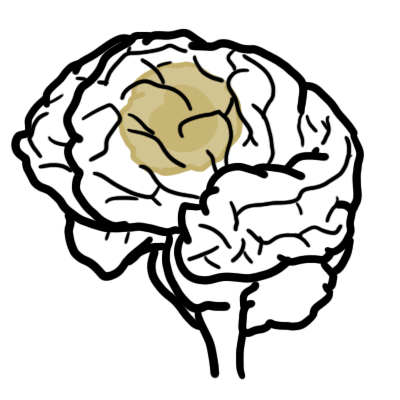Brain Tumour


Brain tumours: refers to a mixed group of neoplasms originating from intracranial tissues and the meninges with degrees of malignancy ranging from benign to aggressive.
| WHO Classification of Primary Brain Tumors |
| Neuroepithelial tumors |
| Astrocytic tumors |
| Oligodendroglial tumors |
| Oligoastrocytic tumors |
| Ependymal tumors |
| Choroid plexus tumors |
| Neuronal and mixed neuronal-glial tumors |
| Pineal tumors |
| Embryonal tumors |
| Tumours of cranial and paraspinal nerves |
| Schwannoma |
| Neurofibroma |
| Perineurioma |
| Malignant peripheral nerve sheath tumor |
| Tumours of the meninges |
| Meningioma |
| Lymphomas and hematopoietic neoplasms |
Common Brain Tumour in children
Common Brain Tumours in adults
PRIMARY MALIGNANT INTRACRANIAL TUMOURS
| Histological type | Common site | Age |
| Glioma (astrocytoma) | Cerebral hemisphere Cerebellum Brain stem | Adulthood Childhood/adulthood Childhood/young adulthood |
| Oligodendroglioma | Cerebral hemisphere | Adulthood |
| Medulloblastoma | Posterior fossa | Childhood |
| Ependymoma | Posterior fossa | Childhood/adolescence |
| Cerebral lymphoma (microglioma) | Cerebral hemisphere | Adulthood |
PRIMARY BENIGN INTRACRANIAL TUMOURS
| Histological type | Common site | Age |
| Meningioma | Cortical dura Parasagittal Sphenoid ridge Suprasellar Olfactory groove | Adulthood |
| Neurofibroma | Acoustic neuroma | Adulthood |
| Craniopharyngioma | Suprasellar | Childhood/adolescence |
| Pituitary adenoma | Pituitary fossa | Adulthood |
| Colloid cyst | Third ventricle | Any age |
| Pineal tumours | Quadrigeminal cistern | Childhood (teratomas) Young adulthood (germ cell) |
Seizures are the presenting symptom in 25% of tumours.
Common Signs and Symptoms

Please confirm you want to block this member.
You will no longer be able to:
Please allow a few minutes for this process to complete.
Discussion